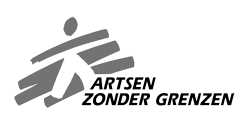Works Councils: The Dutch Way
Did you know the Dutch Works Council system derives from the way we have been making new land for centuries in the Netherlands?
Our creation of new land from the sea has been a marvel of engineering. Human cooperation was what really made this possible. Centuries ago, landowners, engineers, scientists and millers started cooperating, so they could drain a vast body of water. First the dikes had to be built. Then the power of the windmills had to be harnessed to pump the water. The knowledge of the scientists was as essential as the craft of the millers in creating new and fertile land.
The Dutch call this newly created land ‘polder’. In the Netherlands we even have a verb ‘poldering’.
It means gathering the opinions of all, in order to make the best decision possible.
Consultation and cooperation were as key then as they are now.
This is the Dutch way of working together, for the benefit of all.
Modern Dutch Works Councils use the same cooperative spirit to balance the interests of the organization with those of the employees to help improve the quality of the organization’s decision making and implementation processes. I would be proud to help facilitate this legacy for your company.
Make your Works Council effective…
In the Netherlands, any organization of more than 50 employees must have a Dutch Works Council in place. It is best practice to hire an expert external consultant who understands the international milieu and who knows how to work with Works Councils under the Dutch Works Council Act. To benefit your company, you should hire a professional in teambuilding and decision making processes,
such as HO-Maatwerk.
… with the neutral support …
I understand how to build a good team and how to best facilitate their decision making. My decades of experience in Works Council support, added to my professional degrees in management and business psychology, help me to detect patterns and read the room. I can be a key player in smooth Works Council processes for your organization and increase efficiency.
… of a professional consultation secretary like me.
Works Councils are most effective, when they maintain a certain pace. I love being the facilitator that makes this possible. The tools that I use are not windmills, but diplomacy, appreciation and a healthy dose of humor. I hold myself accountable for a healthy employer to Works Council dynamic. I keep the details organized for the council and help them stay on track. This way they need only focus on their main task: to balance the interests of the organization with those of the workforce to the satisfaction of all.

“You promised to build us a well-structured Works Council. You achieved this goal in no time and it made a world of difference. Thanks to you, the Works Council runs smoothly now.”

“The value of meeting minutes for effective Works Council processes is often underestimated. Not by me, nor by Hanneke. She knows how to transform minutes into the desired instrument for decision making processes. This way, agreements indeed lead towards action.”
“The value of meeting minutes for effective Works Council processes is often underestimated. Not by me, nor by Hanneke. She knows how to transform minutes into the desired instrument for decision making processes. This way, agreements indeed lead towards action.”

“Hanneke can separate fact from emotion in a pleasant way. Due to her diplomatic wording, she helps keep the relationship between the organization and the Works Council professional and in the meantime she manages to avoid escalation, though she is not too shy to share her sharp analytics. It has been sheer pleasure to work with her during 14 years.”

“Thank you for streamlining, expanding and improving our freshly started Works Council. Thank you for your upbeat, brisk and positive contribution. Thank you for your diplomatic approach. We really klicked.”


